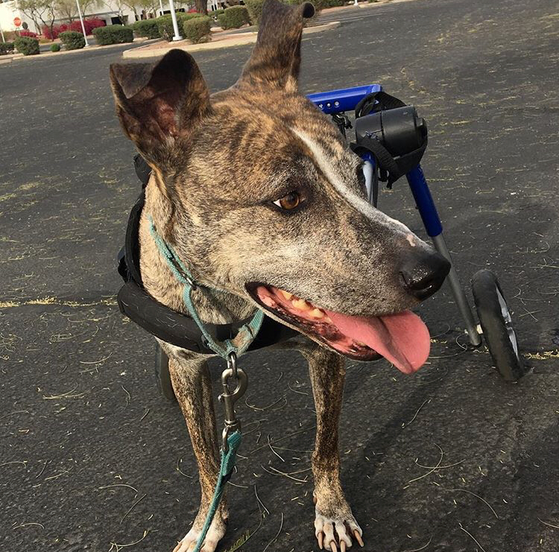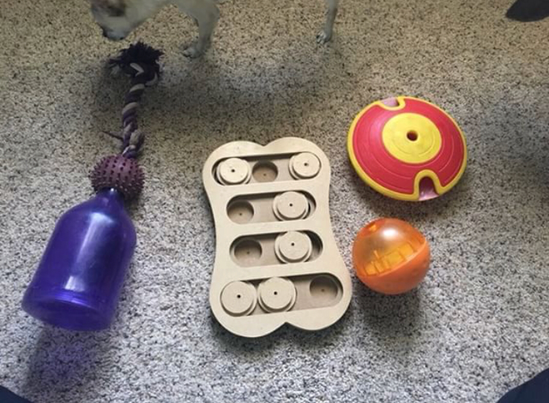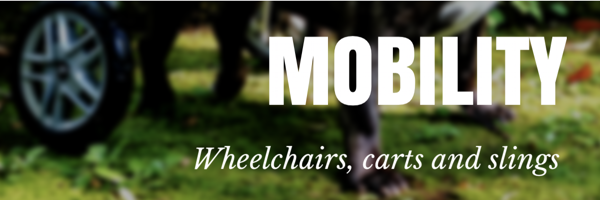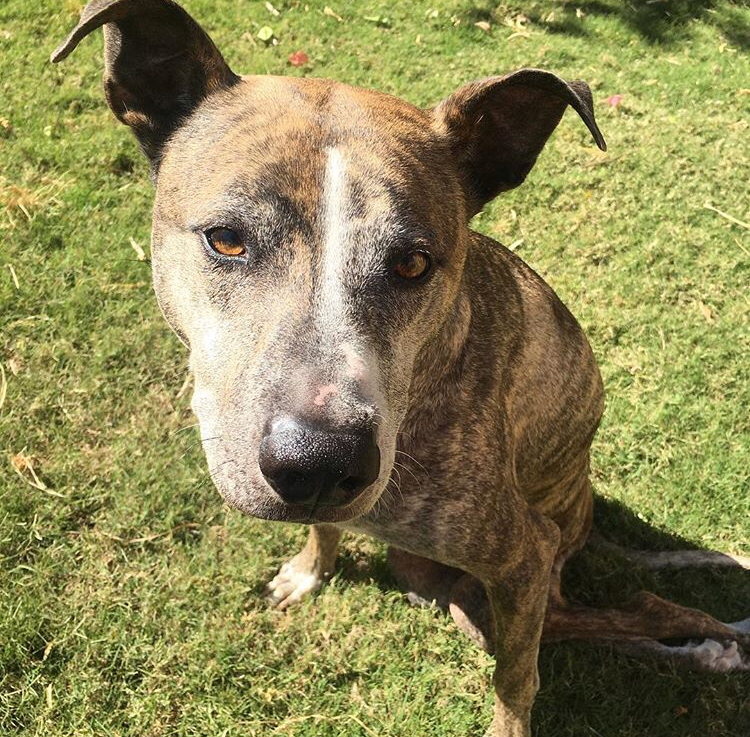|
6/25/2018 2 Comments BURTONToday we talk to Meredith who kindly shares her experience with her dog Burton. Meredith adopted Burton from the Arizona Animal Welfare League when he was about 6 months old. Burton became paralyzed during 2016 from a suspected Fibrocartilagenous Embolism (FCE). Meredith tells their story and offers some great tips on bladder management and keeping high energy dogs entertained. Could you tell us about Burton's condition?I will never forget March 6, 2016 when I woke for my normal morning walk with my three rescue dogs to find Burton paralyzed. It was completely unexpected and an incredibly scary experience not knowing what happened or if something could have been prevented. Over two years later, Burton scoots around with his super strong front legs in the house and yard and also has a wheelchair for walking. He just recently hit 1.5 miles which is the furthest he has gone on a walk since his paralysis. Burton does not have any feeling midway down his back all the way to his backend. I have to help him pee by expressing his bladder and deal with the other business whenever and wherever it appears. What is a regular day like with Burton?I wake up early to beat the terrible heat in Arizona and immediately get Burton outside to pee. We head back in the house and I take my other two rescues for the first round of walking while Burton stays behind with a frozen peanut butter Kong treat. When I am back from the first walk, Burton is put in his wheels and all three of the dogs go on a mile long walk through a nearby park with a lake. After the walk is over, it is feeding time and then usually nap time. In the afternoon, if Burton is not already outside sunning himself on the pool deck or grass, I take him outside. Frozen kong treats in the afternoon plus some more snoozing or sniffing of the air and listening to the birds. (In the summer, this would be when I get Burton in the pool with a doggy life vest to do some laps to keep working his front leg muscles). The evening consists of dinner, me doing class work for my online MBA, and then hopefully some relax time with TV and massage time for Burton. My dogs all get a chew strip in the evening (I invest in these versus dental cleanings) and Burton gets frozen pumpkin to help with his number two consistency. Weekends are spent mostly outside in the backyard, on a walk, or on a car ride running errands. I am hopeful I can soon move out of the terrible desert heat and weekends will be spent hiking in the mountains in the Pacific Northwest. I try to keep the same routine during the week and on the weekend, except all of my dogs get much more focused attention on the weekends including more outdoor time, when the weather is nice. Did you try any rehab for Burton? How did it go?I have taken Burton to acupuncture and cold laser therapy within days of his paralysis. He regained some feeling on his back, but that is as far as it ever went. I did three times a week for the first year hoping for more progress and more recently moved to once a week where the vet focuses on his front leg muscles to keep them in tip-top condition. Are there any products that help manage a paralyzed dog?I have gotten an entire week's worth of Wegreeco washable male wraps. Burton wears these overnight to catch any leaks that may occur as he moves around. I have invested in quilted, waterproof bed pads that cover dog beds around the house, my bed if Burton sleeps on it, and beds in the car. They are machine washable and have made clean up so much easier (and keep my other two dogs much happier from a clean house perspective). I have also invested in many different dog puzzles since Burton is super smart and needs the energy outlet (he could have been a search and rescue dog with how much he loves to use his nose). What advice would you to offer someone who is facing life with a paralyzed dog?Observe your dog. If the dog is acting the same as before the paralysis, do everything within your power and resources to find a way to make it work. The resiliency of animals is amazing and all it takes is an owner willing to find a way. It can be frustrating and exhausting, but an incredibly rewarding experience having a paralyzed pet. They make you a better person. At the same time, I do believe animals have a way of telling you if something is too much. If independence or the spirit of the dog is no longer there, quality of life has to be thought about. It is sometimes the most unselfish decision (but always fight to make it work first until you have tried everything!). Burton started chewing his disposable diapers off during the day to let me know he was done with diapers except for overnight - they have a way to communicate if you can interpret the message.
2 Comments
Carol jander
6/27/2018 07:48:20 am
I would like to hear some details on technique and frequency of bladder expressing. My paralyzed pup weighs 26 lb and has always drank an exorbitant amount of water even before her injury. With no control at all I find she pees probably at least 10 times a day and that doesn't count overnight. If I am able to empty the bladder to what I feel is completely empty she still is full again in 2 hours. If I could do it every hour on the hour we might not have any accidents. I have gone from diapers to no diapers to pee pads to no peepads and I am pretty much exhausted.
Reply
6/27/2018 09:49:04 am
Hi Carol. I have been keen to together a tutorial on bladder expression techniques, but I soon realised that each dog can be so different that I found it a little overwhelming to summarise in one post. I'll turn my attention back to this as I know it is one of the biggest stresses for people with paralyzed dogs.
Reply
Leave a Reply. |
Search or select topicsAll Acupuncture Arthritis Bladder Management Blindness Bowel Management Cerebellar Hypoplasia Deaf Degenerative Myelopathy Diabetes Diet Electro Stimulation FCE Genetic Disorder Grooming Hemivertebrae Hydrotherapy Incontinence IVDD Laser Therapy Limb Amputation Limb Deformity Paralysis Physical Therapy Rescue Spinal Injury |
Search by typing & pressing enter





